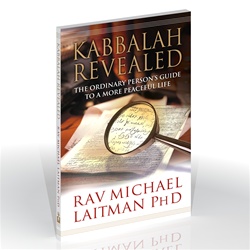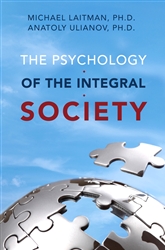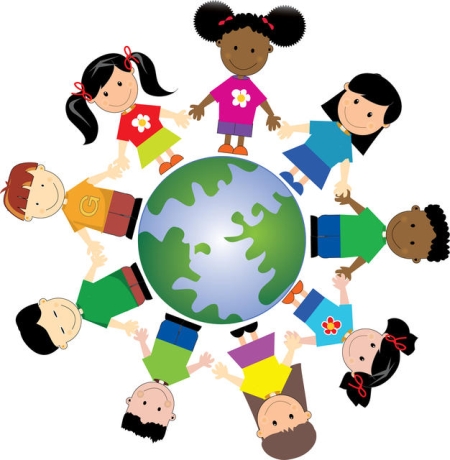
If we look around, we can clearly see that we are not headed for a positive future. We’re in a crisis—a big one. Even if we haven’t been harmed by it, we have no guarantee we will remain unharmed. It appears that there is no area where the crisis has not left its mark, whether in our personal lives, the societies we live in, or in Nature.
Crises in and of themselves are not necessarily negative; they simply indicate that the present state of things has exhausted itself, and that it’s time to move on to the next phase. Democracy, the industrial revolution, women’s liberation, quantum physics, all of these appeared as results of crises in their fields. In fact, everything that exists today is the result of a past crisis.
Today’s crisis is not essentially different from previous ones; it is, however, far more intense, affecting the entire world. But like any crisis, it is an opportunity for change, a springboard for growth. If we choose correctly, all hardships could simply vanish. We could easily provide food, water, and shelter for the entire world. We could establish world peace and make this world a thriving, dynamic planet. But for that to happen, we must want to make it happen and choose what Nature wants us to choose—unity, instead of our present choice of separation.
Why, then, don’t we want to connect? Why are we alienating each other? The more we progress and the more knowledge we gain, the more discontented we become. We’ve learned how to build spaceships, how to build molecule-size robots; we have deciphered the entire human genome. Why then haven’t we learned how to be happy?
The more we’ll learn about Kabbalah, the more we’ll find that it always leads us to the root of things. Before it gives you any answers, it tells you why you are in your present state. And once you know the root of your situation, you will rarely need any further guidance. In that spirit, let’s see what we have been learning until today, and perhaps we will discover why we still haven’t discovered the key to happiness.
Behind Closed Doors
“Man… if he be insufficiently or ill-educated, he is the most savage of earthly creatures.”
–Plato, The Laws
Knowledge has always been considered an asset. Espionage is not an invention of modern times; it has been there since the dawn of history. But it has existed because knowledge has always been disclosed on a need-to-know basis, and the only dispute was about who needs to know.
In the past, the knowledgeable ones were called “sages,” and the knowledge they possessed was of Nature’s secrets. The sages hid their knowledge, fearing it might fall into the hands of those whom they considered unworthy.
But how do we determine who is entitled to know? Does the fact that I have some exclusive piece of information give me the right to hide it? Naturally, no person would agree that he or she is unworthy of knowing; hence we try to “steal” whatever information we want, and which isn’t openly accessible.
But that wasn’t always the case. Many years ago, before egoism reached its highest level, people considered the public’s benefit before they considered their own. They felt connected to the whole of Nature and to the whole of humanity, not to themselves. For them, this was the natural way to be.
But today, our considerations have changed drastically, and we believe that we are entitled to know everything and to do everything. This is what our level of egoism automatically dictates.
In fact, even before humanity reached the fourth level of desire, scholars had begun to sell their wisdom for material profits such as money, honor, and power. As material temptations grew, people could no longer keep to their modest way of life and turn their efforts entirely to researching Nature. Instead, these wise people began to use their knowledge to gain material pleasures.
Today, with the progress of technology and the heightened drive of our egos, misusing knowledge has become the norm. Yet, the more technology progresses, the more dangerous we are becoming to ourselves and to our surroundings. As we become more powerful, we are more tempted to use our power to get what we want.
As we have said before, the will to receive consists of four levels of intensity. The more powerful it becomes, the greater our social and moral decline. It is, therefore, no wonder that we’re in a crisis. It is also very clear why sages hid their knowledge, and why their own growing egoism now compels them to disclose it.
Without changing ourselves, knowledge and progress will not help us. They will only produce greater harm than they already have. Therefore, it would be grossly naive to expect scientific advancement to keep its promise of a good life. If we want a brighter future, we need only change ourselves.
The Evolution Of Desires
The statement that human nature is egoistic is unlikely to make any headlines. But because we are naturally egoistic, we are all, without exception, prone to misusing what we know. This need not mean that we will use knowledge to commit a crime. It can express itself in very small, seemingly trifle things, like getting promoted at work when we didn’t deserve it, or taking our best friend’s loved one away from them.
The real news about egoism is not that human nature is egoistic; it is that I am an egoist. The first time we confront our own egoism is quite a sobering experience. And like any sobering, it is a giant headache.
There is good reason why our will to receive constantly evolves, and we will touch upon it in a little while. But for now, let’s focus on the role of this evolution in how we acquire knowledge.
When a new desire appears, it creates new needs. And when we search for ways to satisfy these needs, we develop and improve our minds. In other words, it is the evolution of the will to receive pleasure that creates evolution.
A look at human history from the perspective of the evolution of desires shows how these growing desires generated every concept, discovery, and invention. Each innovation, in fact, has been a tool that helps us satisfy the mounting needs and demands our desires create.
Happiness or unhappiness, and pleasure or suffering depend on how much we satisfy our needs. But satisfaction requires effort. Actually, we are so pleasure-driven that, according to Kabbalist Yehuda Ashlag, “One cannot perform even the slightest movement without motivation … without somehow benefiting oneself.” Moreover, “When, for example, one moves one’s hand from the chair to the table it is because one thinks that by putting one’s hand on the table one will receive greater pleasure. If one did not think so, one would leave one’s hand on the chair for the rest of one’s life.”
In the post The Global Crisis Has A Happy End, we said that egoism is a Catch-22. In other words, the intensity of the pleasure depends on the intensity of the desire. As satiation increases, desire proportionally decreases. Therefore, when the desire is gone, so is the pleasure. It turns out that to enjoy something, we must not only want it, but keep wanting it, or the pleasure will fade away.
Moreover, the pleasure is not in the desired object; it’s in the one who wants the pleasure. For example: If I’m crazy about tuna, it doesn’t mean that the tuna has any pleasure within it, but that a pleasure in the “form” of tuna exists in me.
Ask any tuna if it enjoys its own flesh. I doubt it would answer positively. I might tactlessly ask the tuna, “But why aren’t you enjoying it? When I take a bite of you, it tastes so good… And you have tons of tuna! If I were you, I’d be in Heaven.”
Of course, we all know this is not a realistic dialogue, and not just because tuna don’t speak English. We instinctively feel that tuna fish can’t enjoy their own flesh, while humans can very much enjoy the taste of tuna.
Why this human enjoyment of the taste of tuna? Because we have a desire for it. The reason tuna fish can’t enjoy their own flesh is that they have no desire for it. A specific desire to receive pleasure from a specific object is called a Kli (vessel/tool), and reception of pleasure within the Kli is called Ohr (Light). The concept of the Kli and Ohr is unquestionably the most important concept in the wisdom of Kabbalah. When you can build a Kli, a vessel for the Creator, you will receive His Light.

The above text was taken from the book Kabbalah Revealed: A Guide To A More Peaceful Life by Dr. Michael Laitman with foreword by Prof. Ervin Laszlo. Also available as eBook (PDF, Kindle & ePub formats), and for free PDF download.





